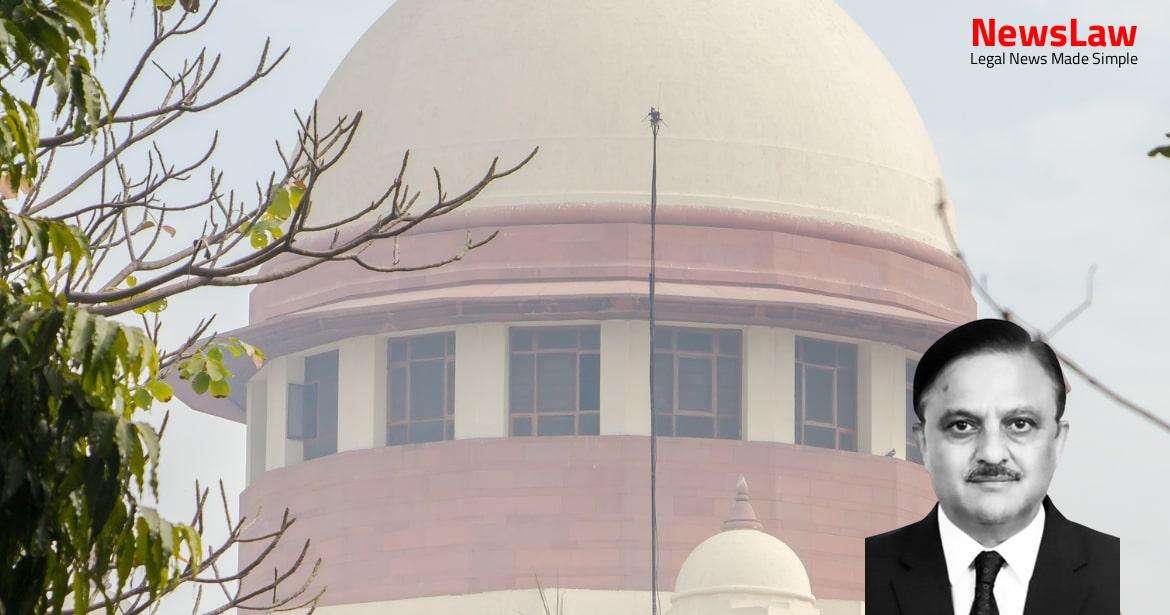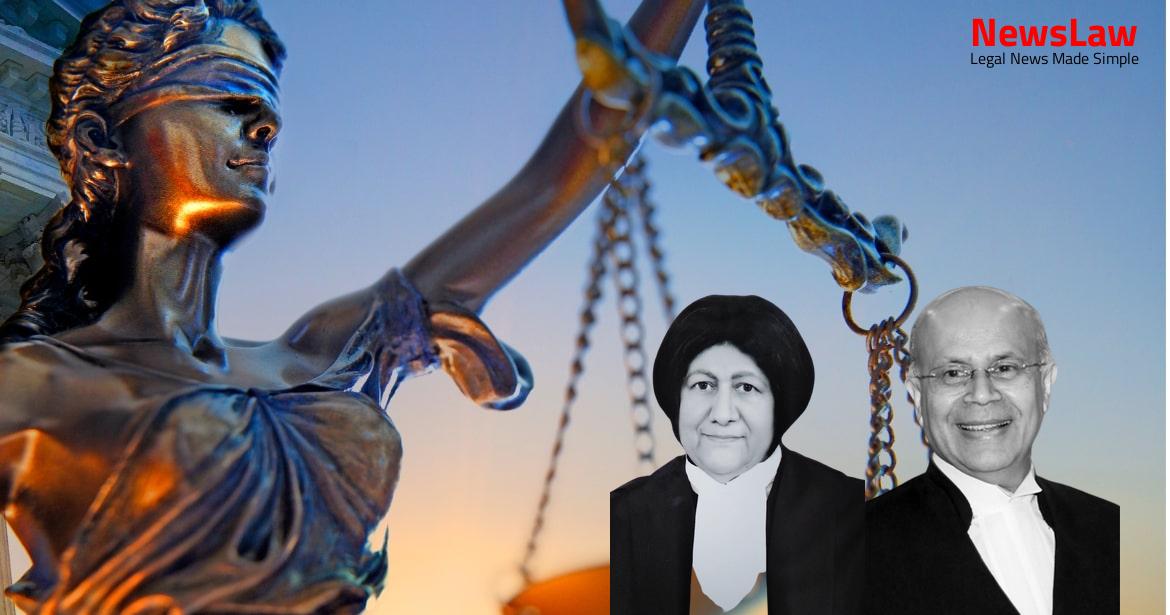In a landmark judgment by the Supreme Court of India, the accused in the Surat murder case has been acquitted. The case, involving the State of Gujarat and the accused, underwent thorough scrutiny due to doubts raised over the prosecution’s evidence. The judgment presents a critical analysis of witness testimonies and investigative procedures, ultimately leading to the acquittal of the accused. This decision marks a significant moment in the pursuit of justice and legal integrity.
Facts
- The appellant-accused was convicted for the offense under Section 302 of the Indian Penal Code.
- There was a dispute between the appellant and the deceased regarding playing music.
- Eyewitnesses provided evidence (PW-3 to PW-9), but they were declared hostile.
- The Trial Court and High Court relied on certain parts of the testimonies of PW-3 to PW-9.
- The High Court found the testimonies of PW-19 and PW-24 credible.
- The injuries sustained by the deceased resulted in his death.
- The incident took place on 6 September 2004 in a rented room where both the deceased and the appellant were staying.
- The High Court upheld the appellant’s conviction.
- The Trial Judge determined that the appellant was not a juvenile when the offense was committed.
- The appellant has been given a life imprisonment sentence.
Also Read: Judgment on Interim Stay of Bail Orders: The Case of Liberty vs. Judicial Discretion
Arguments
- The learned counsel for the appellant highlighted the testimony of hostile eyewitnesses.
- It was argued that PSI Mishra, who allegedly took the appellant into custody, was not produced as a witness.
- Certain statements made by eyewitnesses were deemed unreliable and out of context by the counsel.
- The testimony of witnesses did not align with the prosecution’s case.
- The appellant’s employer, PW-19, claimed that the appellant had made a confession over the phone about the murder, but no investigation was conducted regarding the call.
- The counsel emphasized the failure to examine PSI Mishra as a witness despite claims of being informed by PW-19 about the confession.
- The eyewitnesses were declared hostile, but their testimony holds weight.
- Evidence shows the appellant and the deceased were quarrelling.
- Witnesses heard shouts of ‘save, save’ from the appellant’s room.
- Evidence from multiple witnesses points to the appellant’s involvement in the murder.
- PW-19, the appellant’s employer, stated the appellant confessed to the murder over a phone call.
- PW-24 testified to a dying declaration made by the deceased accusing the appellant of murder.
- The impugned judgments have detailed findings based on a thorough analysis of the evidence.
- The prosecution argued for the credibility of the witnesses despite some turning hostile.
- The evidence indicates the deceased and the appellant were staying together at the time of the murder.
- PW-4’s cross-examination further implicates the appellant in the crime.
Also Read: Zaveri & Co. Pvt. Ltd. vs. ACIL: Legal Precedent on Guarantor Liability
Analysis
- The testimony of PW-19 in cross-examination raises doubts about the appellant’s confession and the involvement of PSI Mishra.
- The arrest of the appellant by PSI Mishra appears suspicious as certain crucial details are missing from official records.
- Witnesses like PW-25 and PW-3 present conflicting accounts regarding the events, leading to inconsistencies in the prosecution’s case.
- The withholding of a vital prosecution witness from the court weakens the credibility of the evidence presented.
- The theory of dying declaration made by the deceased before PW-24 is questioned due to inconsistencies in statements and lack of confidence in the testimony.
- The prosecution’s reliance on witnesses who were declared hostile further complicates the case and raises concerns about the reliability of the evidence.
- Overall, the analysis highlights significant doubts and inconsistencies in the prosecution’s case, casting a shadow of uncertainty over the appellant’s guilt.
- Appellant’s conviction cannot be sustained due to lack of evidence connecting them to the murder.
- Evidence of hostile prosecution witnesses (PW-3 to PW-9) does not provide any credible link to the appellant.
- Prosecution failed to establish a connection between the appellant and the deceased’s murder based on the evidence presented.
Also Read: The Disputed Quarrel: Legal Analysis of the Case Involving Muthu and Kesavan
Decision
- The appellant’s appeal is allowed.
- The appellant will be released unless needed for another case.
- The appellant’s conviction and sentence are set aside.
- The appellant is acquitted of the offence in Sessions Case No 80 of 2005.
- The case was decided by the Fast Track Court in Surat under CR No I/142/2004.
Case Title: LAL MOHAMMAD MANJUR ANSARI Vs. THE STATE OF GUJARAT (2024 INSC 475)
Case Number: Crl.A. No.-003524-003524 – 2023



